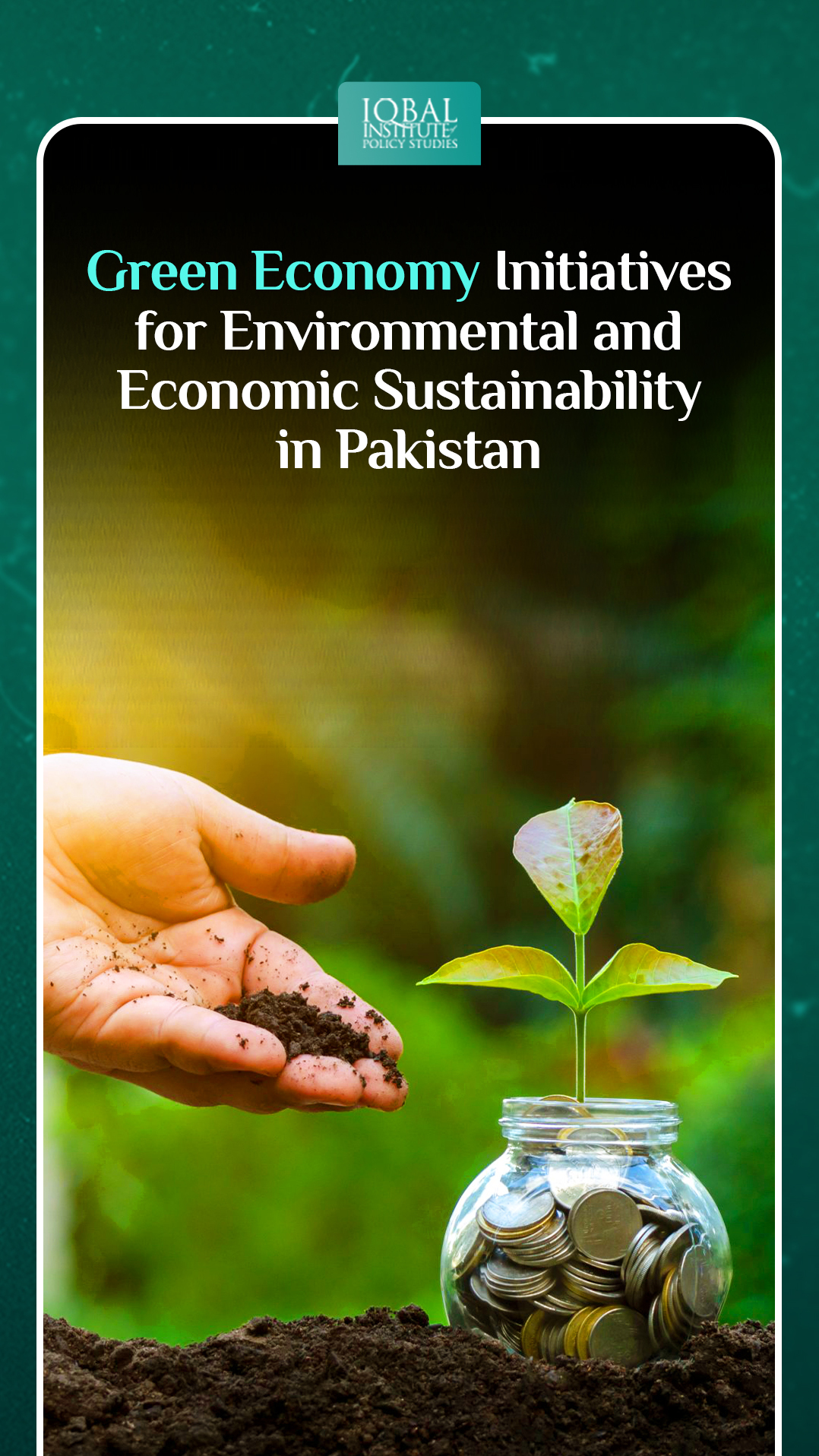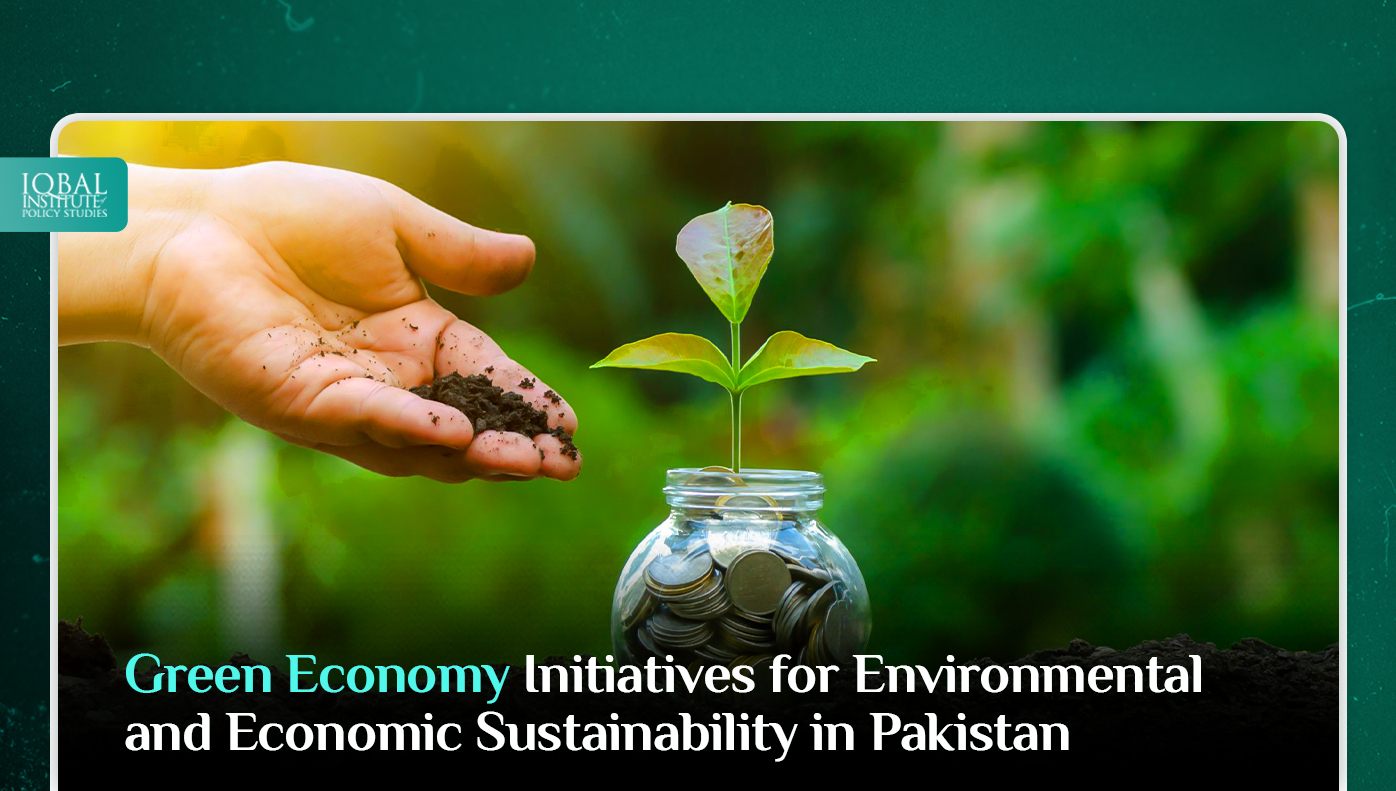In a world where the urgency of addressing climate change is ever more apparent, the concept of a “green economy” stands as a beacon of hope. A green economy seeks a delicate balance between environmental sustainability and economic growth, making it a crucial strategy for a country like Pakistan. With abundant natural resources and a growing population, Pakistan faces the imperative of adopting green economy initiatives to ensure not just a choice but a necessity. This comprehensive blog will delve into the concept of a green economy, elucidate the formidable environmental and economic challenges Pakistan confronts, and explore innovative strategies that can pave the nation’s path toward a sustainable and prosperous future.
Understanding the Green Economy
A profound understanding of the green economy is pivotal in comprehending its significance and the transformative potential it holds for Pakistan. At its core, a green economy represents a departure from the conventional linear model of economic growth, which often extracts finite natural resources heedlessly and neglects the environmental costs. Instead, it is an economic framework rooted in sustainability, where the health of the environment is inseparably linked to economic prosperity. In this paradigm, environmental stewardship is not an impediment to growth but a catalyst, recognizing that sustainable practices can simultaneously enhance ecological well-being and drive economic advancement. This holistic approach emphasizes the prudent management of resources, the promotion of clean and renewable technologies, and the reduction of environmental risks. By pursuing a green economy, Pakistan can embark on a journey that reconciles its developmental aspirations with the imperative of environmental preservation, ensuring a harmonious coexistence of nature and economic growth.
The Environmental and Economic Landscape of Pakistan
Environmental Challenges
Pakistan grapples with an array of pressing environmental challenges, including water scarcity, air pollution, deforestation, and the palpable impacts of climate change. These challenges pose not only threats to the natural environment but also significant risks to human health, agriculture, and overall economic stability.
Economic Opportunities
Amidst these formidable environmental challenges, Pakistan possesses substantial renewable energy resources, particularly solar and wind power, and boasts a diverse landscape conducive to sustainable agriculture. Harnessing these resources presents an exceptional economic opportunity for the nation.
Green Economy Initiatives for Pakistan
Renewable Energy Revolution
Pakistan is a sun-blessed country with vast untapped solar energy potential. Initiatives to harness solar and wind energy can substantially reduce the nation’s dependence on fossil fuels, mitigate climate change, and create jobs in the burgeoning renewable energy sector.
Solar Energy Expansion
Investment in large-scale solar power projects, solar panel manufacturing, and net-metering programs can make solar energy accessible and affordable for both urban and rural communities.
Wind Energy Development
Exploiting wind power through the establishment of wind farms and wind turbine manufacturing facilities can further diversify the energy mix.
Sustainable Agriculture Practices
Agriculture is the backbone of Pakistan’s economy, providing livelihoods to millions. Encouraging sustainable agriculture practices, such as crop rotation, organic farming, and efficient water management, can enhance crop yields while conserving resources and reducing the environmental footprint.
Drip Irrigation and Precision Agriculture
The adoption of modern irrigation techniques and precision agriculture technologies can optimize water use and boost crop productivity.
Promotion of Organic Farming
Encouraging organic farming methods can enhance soil fertility, reduce chemical use, and cater to the growing global demand for organic produce.
Afforestation and Biodiversity Conservation
Reforestation and biodiversity conservation efforts can combat deforestation, enhance carbon sequestration, and protect fragile ecosystems.
Tree Plantation Drives
Launching nationwide tree plantation campaigns can involve communities in restoring forests, combating desertification, and sequestering carbon.
Protected Areas Expansion
Expanding and properly managing national parks and protected areas can safeguard biodiversity, promote ecotourism, and support local economies.
Circular Economy Practices
Adopting circular economy principles, which prioritize recycling, waste reduction, and resource efficiency, can curtail environmental pollution and create new business opportunities.
Waste Recycling Programs
Establishing recycling facilities for plastics, paper, and electronic waste can reduce landfill pressure, minimize waste, and promote recycling industries.
Promotion of Sustainable Products
Encouraging the use of eco-friendly products and sustainable packaging can stimulate demand for environmentally conscious goods.
Green Finance and Investment
To fuel these ambitious initiatives, Pakistan must develop mechanisms for green finance and attract sustainable investments.
Green Bonds
Issuing green bonds can raise funds explicitly for environmentally friendly projects, such as renewable energy infrastructure, sustainable agriculture, and conservation efforts.
Incentives for Green Investments
Offering tax incentives and subsidies to businesses investing in green technologies and initiatives can expedite the transition to a green economy.
Conclusion
The transition toward a green economy is no longer just a choice but a compelling necessity for Pakistan’s sustainable development. By strategically implementing these multifaceted green economy initiatives, Pakistan can concurrently address its daunting environmental challenges and unlock remarkable economic opportunities. This transformative journey demands concerted efforts from the government, private sector, civil society, and international partners. It represents a future where Pakistan can thrive economically while preserving its invaluable natural resources for the benefit of current and future generations. Through the pursuit of a green economy, Pakistan can emerge as a model of environmental and economic sustainability on the global stage.
This article is written by Radma Nouman. Radma is a research analyst at the Iqbal Institute of Policy Studies (IIPS).



Leave a Reply